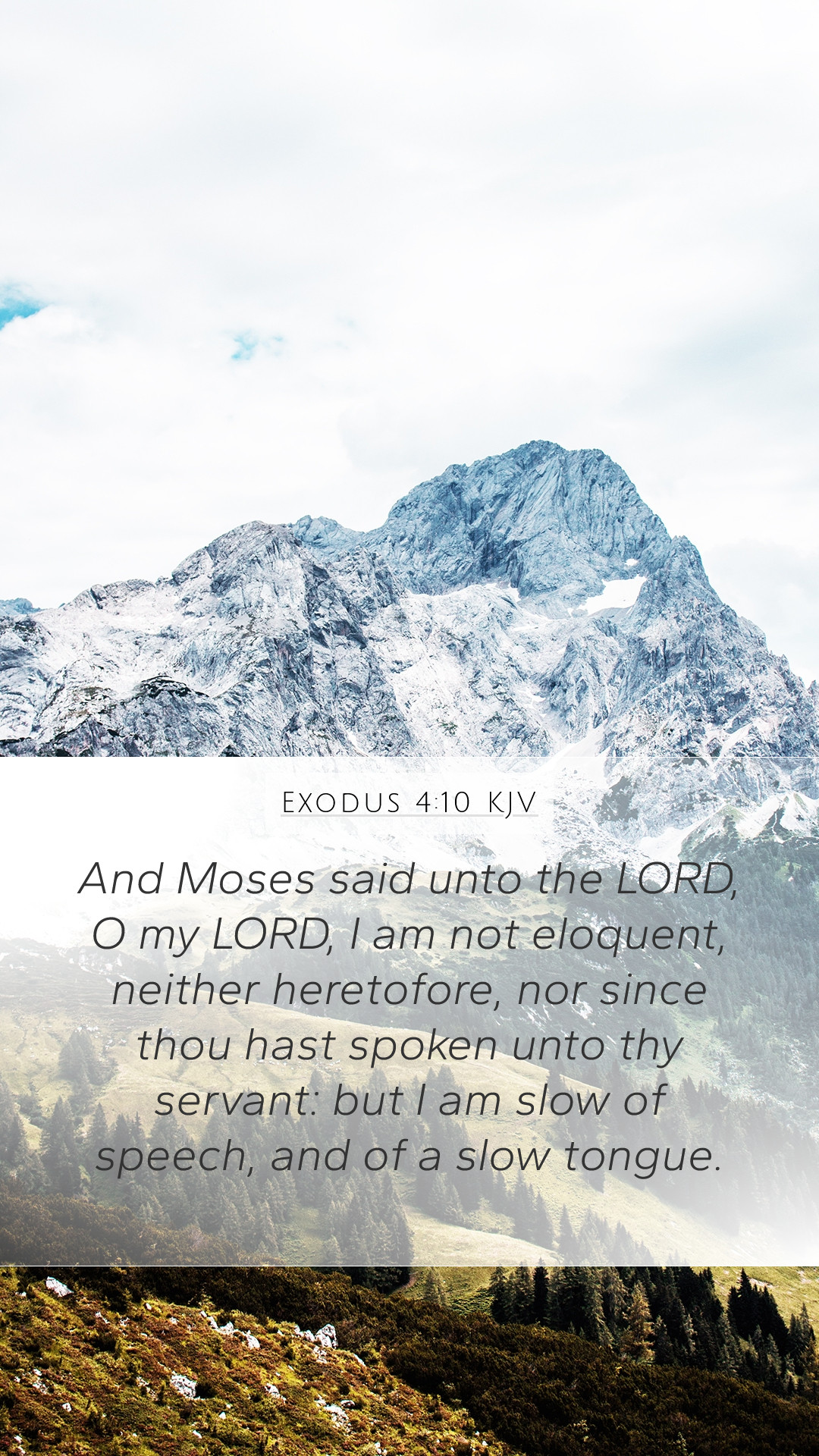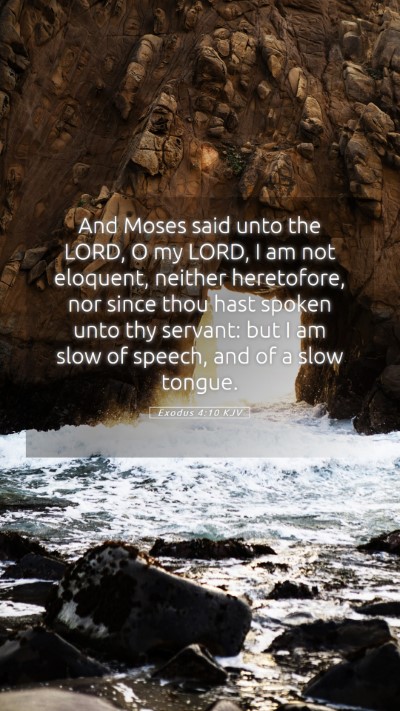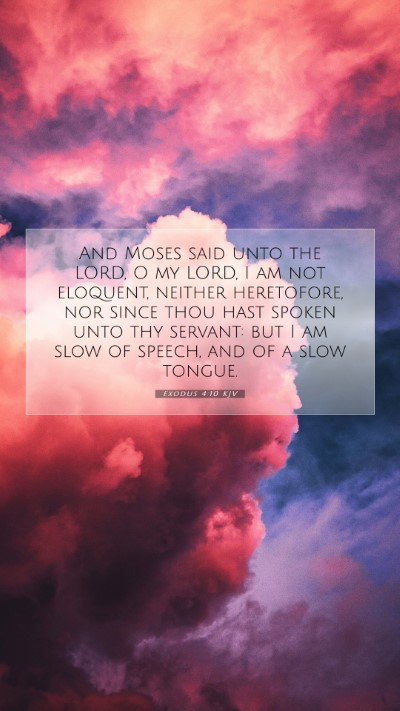Understanding Exodus 4:10 - Bible Verse Commentary
Exodus 4:10 states, "And Moses said to the Lord, 'Oh my Lord, I am not eloquent, neither before nor since You have spoken to Your servant; but I am slow of speech and slow of tongue.' This verse highlights Moses' feelings of inadequacy regarding his ability to speak effectively. To provide a comprehensive understanding, let’s explore this verse using insights from various public domain commentaries.
Contextual Background
Before delving into the verse, it's essential to understand the context of Moses’ calling. After fleeing Egypt, Moses encounters God in the form of a burning bush. God commissions him to lead the Israelites out of slavery. However, Moses hesitates, fearing he is not equipped for such a daunting task.
Insights from Commentaries
-
Matthew Henry's Commentary:
Matthew Henry emphasizes that Moses' self-doubt stems from his past and his recognition of his limitations. Henry argues that God often calls the unqualified and equips them for His purposes. This verse underlines the theme that God does not always choose the eloquent or skilled, but rather those willing to follow His command.
-
Albert Barnes' Notes:
Albert Barnes focuses on the phrases "not eloquent" and "slow of speech," suggesting that Moses may have had a speech impediment or lacked confidence in his rhetorical skills. Barnes points out that this condition does not hinder God's ability to work through a person, as God's strength is made perfect in weakness (2 Corinthians 12:9).
-
Adam Clarke's Commentary:
Adam Clarke offers a detailed analysis of Moses’ excuses. He highlights that Moses had previously been raised in Pharaoh's household and was educated in the language of the Egyptians. Clarke notes that Moses' reluctance reveals his internal struggle and the human inclination to question one's abilities when faced with God’s directives.
Theological Implications
This verse illustrates a significant theological principle: God's choice of individuals is not based on their inherent capabilities. It teaches that reliance on divine guidance is crucial when called to undertake significant tasks. As Moses expressed his feelings of inadequacy, this reflects a common human experience, emphasizing the need for faith in God’s empowering presence.
Application to Daily Life
For modern readers, Exodus 4:10 serves as a reminder that self-doubt does not disqualify one from fulfilling God’s purpose. Many individuals struggle with feelings of inadequacy in various aspects of life—career, ministry, relationships. This verse encourages believers to recognize that God can use anyone, regardless of their perceived shortcomings, to carry out His will.
Cross References
- Jeremiah 1:6 - Jeremiah also expressed doubts about his speaking abilities.
- 1 Corinthians 1:26-29 - Paul speaks about God choosing the weak and foolish to shame the wise.
- 2 Corinthians 12:9 - God's power is made perfect in weakness.
Conclusion
In examining Exodus 4:10, we gain a richer understanding of God’s character and His calling. This verse encourages us to grasp that feelings of inadequacy are common, yet they do not negate the potential for divine effectiveness in our lives. By leveraging insights from Bible verse commentaries, we can deepen our Bible study insights, leading to profound growth in understanding Scripture.
For those engaged in Bible study groups or online Bible study, this passage provides ample material for discussion and reflection. Utilizing tools and resources dedicated to Bible study lessons can enhance interpretation, making it easier to comprehend difficult Bible passages.


